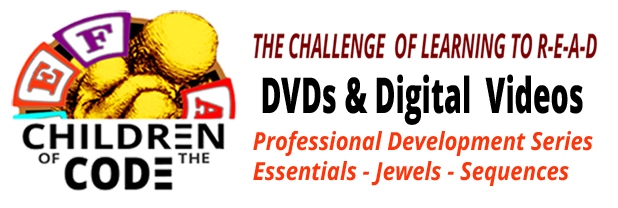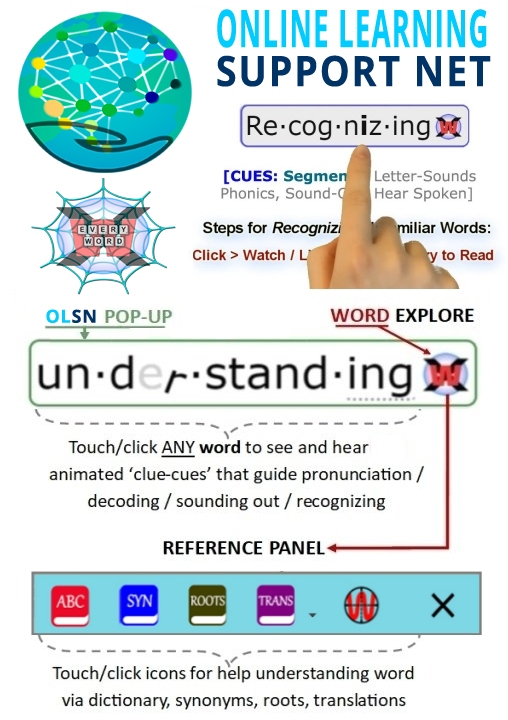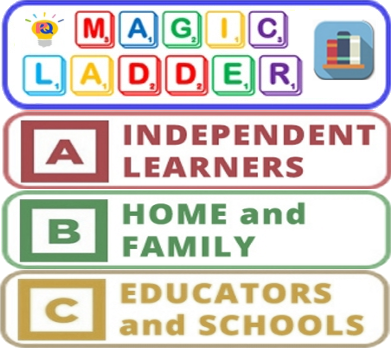Vocabulary
I think sometimes in education vocabulary is looked at in much too mundane a way. Indeed, vocabulary is a person’s tools of thought. – Dr. Keith Stanovich, Canada’s Research Chair of Applied Cognitive Science at the Department of Human Development and Applied Psychology, University of Toronto. Source: COTC Interview – http://www.childrenofthecode.org/interviews/stanovich.htm#VerbalIntelligenceandMetacognitiveFunctions
Note: Remember to click on any word on this page to experience the next evolutionary step in technology supported reading.
Maternal Speech and Early Vocabulary Development
Regardless of SES, more complex and richer maternal speech was associated with more rapid vocabulary development in children. The central finding of this research was that the effects of the complexity and richness of their mothers’ speech fully explained the SES-related difference in the children’s vocabulary use
Summarized from Child Development, Vol. 74, Issue 5, The Specificity of Environmental Influence: Socioeconomic Status Affects Early Vocabulary Development Via Maternal Speech by E. Hoff. Copyright 2003 The Society for Research in Child Development, Inc. Source: http://www.srcd.org/journals/cdev/1-1/Hoff.pdf
Caregivers’ Contingent Comments to 9 Month Infants
Total number of words mother’s used at 9 months predicted vocabulary – Further, we found, on average, the total number of words mothers used in 10 minutes predicted children’s vocabulary comprehension at 12 months, controlling for age (r=.87, p=.004). The pattern of results, however, suggested that mothers’ total number of words while engaging in caregiver contingent comments was driving the effect. Specifically, vocabulary comprehension at 12 months of age was associated with mothers’ total words when engaging in contingent comments at 9 months (r=.89, p=.004), but not mothers’ total number of words within other child-centered acts and child-directive acts.
Pamela Rosenthal Rollins, University of Texas at Dallas – Callier Center for Communication Disorders (in press, Journal of Applied Psycholinguistics) Source: http://www.utdallas.edu/~rollins/ccc_paper.html
Sources of Child Vocabulary Competence: A multivariate model
This study examines sources of individual variation in child vocabulary competence in the context of a multivariate developmental ecological model. Maternal sociodemographic characteristics, personological characteristics, and vocabulary, as well as child gender, social competence, and vocabulary competence were evaluated simultaneously in 126 children aged 1;8 and their mothers. Structural equation modelling supported several direct unique predictive relations: child gender (girls higher) and social competence as well as maternal attitudes toward parenting predicted child vocabulary competence, and mothers’ vocabulary predicted child vocabulary comprehension and two measures of mother-reported child vocabulary expression.
Bornstein MH, Haynes MO, Painter KM. Laboratory of Comparative Ethology, National Institute of Child Health and Human Development, National Institutes of Health, Bethesda, MD 20892-2030. Source: http://www.ncbi.nlm.nih.gov/entrez/query.fcgi?cmd=Retrieve&db=PubMed&list_uids=9770912&dopt=Abstract
Vocabulary Explosion
By age 3, a child is forming simple sentences, mastering grammar, and experiencing a “vocabulary explosion” that will result, by age 6, in a lexicon of more than 10,000 words.
Ross A. Thompson, Developmental Psychologist, University of California, Davis – National Scientific Council on the Developing Child. Source:http://www.duboislc.org/EducationWatch/ShapingBrainsOfTomorrow.html
The Detailed Age Trajectory of Oral Vocabulary Knowledge: Differences by Class and Race
Data from the Children of the NLSY79 (CNLSY) are pooled together across survey waves, 1986–2000, to provide an unusually large sample size, as well as two or more observations at different time points for many children, recorded at single months of age between 36 and 156 months. We fit a variety of multilevel growth models to these data. We find that by 36 months of age, large net social class and Black–White vocabulary knowledge gaps have already emerged. By 60 months of age, when kindergarten typically begins, the Black–White vocabulary gap approximates the level it maintains through to 13 years of age. Net social class differences are also large at 36 months. For whites, these cease widening thereafter. For Blacks, they widen until 60 months of age, and then cease widening. We view these vocabulary differences as achieved outcomes, and find that they are only very partially explained by measures of the mother’s vocabulary knowledge and home cognitive support. We conclude that stratification studies as well as program interventions should focus increased effort on caregiver behaviors that stimulate oral language development from birth through age three, when class and race gaps in vocabulary knowledge emerge and take on values close to their final forms.
Children are trained up to the family-specific pattern of language use, and it is variation in those family-specific patterns that largely determine the different vocabulary trajectories observed for children of different social classes.
George Farkas, Department of Sociology, Pennsylvania State University and Kurt J. Beron, School of Social Sciences, University of Texas – Social Science Research 33,3 (September 2004) Source: http://www.nlsbibliography.org/qauthor.php3?xxx=BERON,+KURT
Brain’s Listening Dominated by Language
A Dutch scientist counted the words that his child had heard by the time he was nine months of age and he found the child has been in the presence of about four and a half million words, of which about half a million had been spoken to the child. The child had actually had half a million words directed to him, of which about fifty thousand were produced in highly exaggerated form, in parent-ese, where the parent is talking in baby talk to the baby so the child maybe can follow the speech a little more clearly. That’s before the child puts the meaning to the first word. That’s massive experential exposure.
Now you and I know families at which that same moment in time, a child may have not been in the presence, except maybe on the television, of fifty thousand words. Does that make a difference? Very probably. It very probably makes a difference and the more the parents are interacting with a child, in a sense, the more that the received speech means to the child, probably the greater value it has as a training signal. It will make a difference. Sound experience in a child will make a difference. The way the processor of the brain will be set up will be largely dominated to specialize for the native language the child is exposed to because that sound exposure is so massive and so special in the history of learning in the child.
Michael Merzenich, Chair of Otolaryngology at the Keck Center for Integrative Neurosciences at the University of California at San
Francisco. He is a scientist and educator, and found of Scientific Learning Corporation and Posit Science Corporation. Source: COTC Interview – http://www.childrenofthecode.org/interviews/merzenich.htm#Brain’sListeningDominatedbyLanguage
Vocabulary, Verbal Intelligence and Metacognitive Functions
Dr. Keith Stanovich: … I think sometimes in education vocabulary is looked at in much too mundane a way. Indeed, vocabulary is a person’s tools of thought.
David Boulton: And the exercise environment for extending their verbal intelligence.
Dr. Keith Stanovich: Yes, wonderful. And extending verbal intelligence, but also a thing I want to stress is the metacognitive functions, because that’s what’s coming into play with these mental state terms.
Keith Stanovich, Canada’s Research Chair of Applied Cognitive Science at the Department of Human Development and Applied Psychology, University of Toronto. Source: COTC Interview –http://www.childrenofthecode.org/interviews/stanovich.htm#VerbalIntelligenceandMetacognitiveFunctions
Abstraction, Generalization and Decontexualization
…Any kind of vocabulary is a mental tool. These are mental tools that we use and they bootstrap metacognition in the sense that they serve to stabilize thought. The cognitive scientist, Andy Clark, has written quite eloquently about this.
Keith Stanovich, Canada’s Research Chair of Applied Cognitive Science at the Department of Human Development and Applied Psychology, University of Toronto. Source: COTC Interview – http://www.childrenofthecode.org/interviews/stanovich.htm#Abstraction,GeneralizationandDecontextualization













